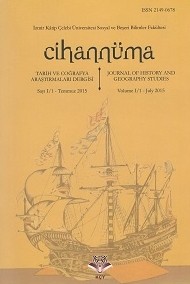Workers as Petitioners: Discursive Practices of Iranian Textile Workers, 1906-1941
Workers as Petitioners: Discursive Practices of Iranian Textile Workers, 1906-1941
Author(s): Serhan AfacanSubject(s): Political history, Social history, Labor relations, Pre-WW I & WW I (1900 -1919), Interwar Period (1920 - 1939), WW II and following years (1940 - 1949)
Published by: İzmir Kâtip Çelebi Üniversitesi, Sosyal ve Beşeri Bilimler Fakültesi
Keywords: Iranian textile workers; labour activism; petitions; state-society relations;
Summary/Abstract: This study deals with the discursive practices of Iranian workers and their relationship with the state from the Constitutional Revolution in 1906 until the end of Reza Shah’s reign in 1941 with a particular focus on the late 1920s and 1930s. Although organized labour, such as trade unions, as well as collective labour actions, such as strikes, are undeniably important in examining the trajectory of Iranian workers’ relationship with the state, only a small segment of workers joined in them, compared to their overall number. Thus, this article provides an analysis of workers’ petitions as a more common and non-confrontational form of labour activism, and an often-deferential means of negotiating with the state over working and living conditions. In the main, it argues that the discursive formation of the Iranian working class, in its broadest sense, preceded its material formation. Also, since non-striking workers were not necessarily passive recipients of state policies, an emphasis is made on workers’ petitions, mostly from the textile industry, to show how they tried to work the system ‘to their minimum disadvantage’, to use Eric Hobsbawm’s phrase.
Journal: Cihannüma: Tarih ve Coğrafya Araştırmaları Dergisi
- Issue Year: VI/2020
- Issue No: 2
- Page Range: 157-177
- Page Count: 21
- Language: English

